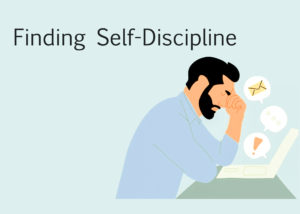I probably experience a story like this at least once a month. Keep in mind, I’m only one recruiter and even though I’m far beyond average, I still only experience a very minute group of hiring processes. The reason I bring this up is that when I saw this story unfold over the last few months I wondered how many millions of times this kind of thing happens. So here’s the story:
Seven months ago, John, the regional manager of a multibillion-dollar company had one of his better people retire. So, John started looking for her replacement. He rather quickly found a really good candidate but his hiring process wound up taking close to six weeks and the candidate found another job. So John started again. We got involved in the situation at this time and encourage John to find two or three great candidates and take them all through the process at the same time realizing, especially since his interviewing process was so long, that he was likely to lose at least one along way. He assured us, that after last situation he would move the process much more quickly. (That’s what they all say.)
But he didn’t. And on top of that, one of the people that he had hired last January that has turned out to be a “bust,” according to him because the employee just simply can’t or won’t get in front of enough customers, so he’s had to put that person on a plan. He is now going to have two openings. So the pressure is now more intense.
Instead of shepherding two or three candidates through the process, John fell back on his old habit of picking one candidate and taking one candidate at a time through his process.
The process was:
-
First: The initial interview with John
-
Second: The candidate would meet with one of the candidate’s potential peers (which took a week)
-
Third: The candidate would need to meet with two of John’s peers in different parts of the country, and for some reason they insisted that candidate meet with both of these people at the same time via a Teams interview, which meant they had to coordinate convenient times for the two managers to be available at the same time. The first time they coordinated a meeting one of the managers had to cancel, so they had to coordinate another meeting. All of this took another three weeks.
-
Forth: The candidate would have to meet with John’s boss, the vice president.
Obviously, no one’s gotten to the forth point in this search.
Fortunately, the one candidate was still available. Unfortunately, one of the interviewing managers could only be on the call for 30 minutes and didn’t like the candidate because the candidate just didn’t seem “energetic enough.” (How you can tell that in a 30 minute Teams interview, I have no idea.) It goes without saying that the candidate’s track record was really good, but as so often happens. People evaluate a candidate based on how they interview instead of their track record. (Yes, even in just 30 minutes.) John just didn’t feel comfortable in pushing the candidate through at the objection of one of his peers, so now he had to start all over. It bears mentioning that, when John hired the employee who he has to put on plan, he respectfully “overrode” one of the objections of one of his peers. This fact came out when we were arranging the peer interviews for the new candidate. Obviously, John was not as likely to “override” one of his peer’s opinions again because it doesn’t look great the last time he did it.
It was the end of the quarter, so John had to spend two weeks helping his people close deals and couldn’t interview. After those two weeks, he started interviewing again. And, so that is where we are now, we just started interviewing again.
Now, please understand that John is a 10 year experienced manager with more than 15 years in his business. He is really good at what he does. In fact, he’s a really good manager and one of the nicest people that you’d ever meet. Part of the problem is that his company, instead of just letting him interview and hire the way he used to, instituted a new process of interviewing and hiring to keep from making hiring “mistakes.” John has one of the best track records of hiring people in the whole company, he can’t very well buck a companywide process of hiring that is supposed to ensure success. They’d be better off to just leave John alone and let him manage his own region. But that ain’t going to happen.
As of this week, John is into his seventh month of trying to hire somebody. Within a couple weeks he’s going to be looking for two people. And, obviously, the longer it goes the harder it gets. John’s lucky because he has a lot of credibility with his company. Most managers would be criticized for taking so long to hire. Most managers would appear to be incompetent and subtly questioned behind their back.
As I mentioned in the beginning, I report this situation because it happens a lot. People and companies are so afraid of making decisions that might turn out poorly they create nightmares for themselves. Nobody intentionally does this, but that’s what happens.
It’s really hard for most people to imagine how many times this kind of thing happens. It happens a lot. Most folks will never admit to stuff like this. Companies and the people in them should think about the cost of these processes as they invent them.



